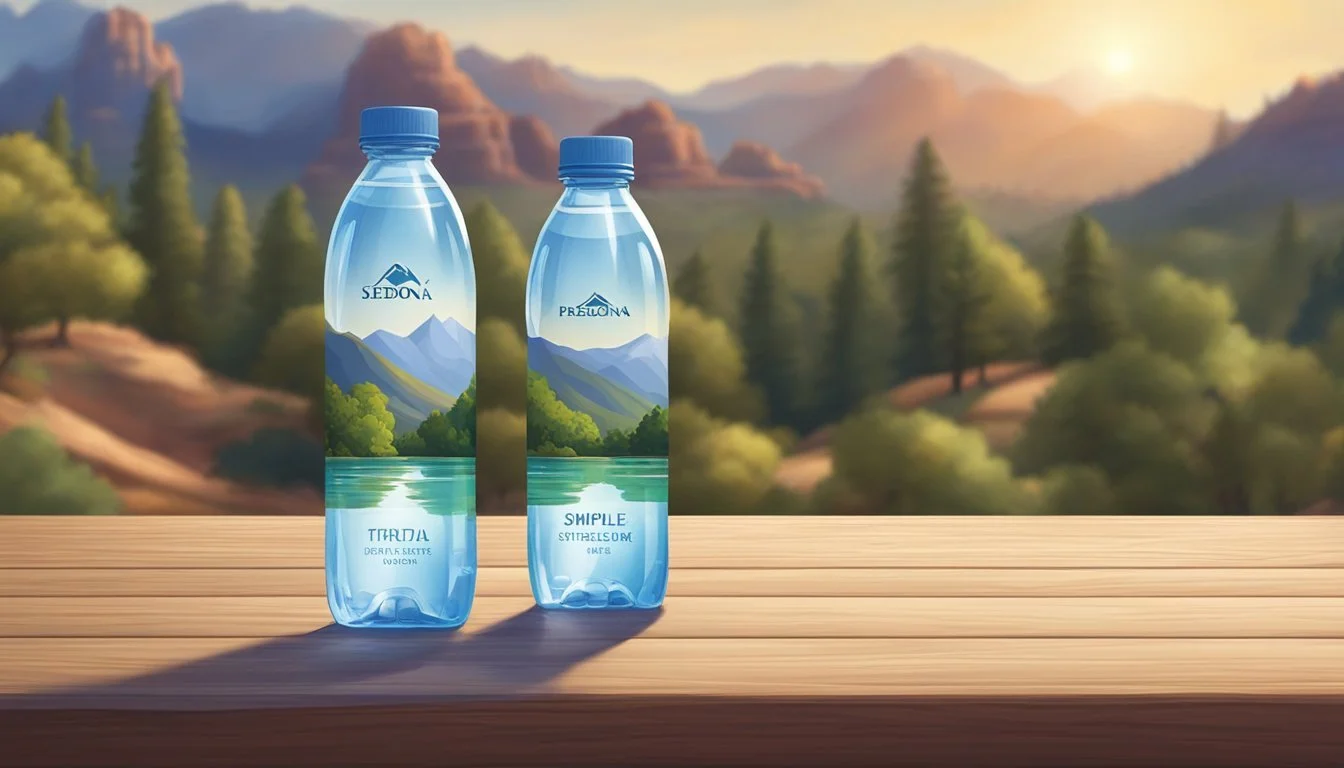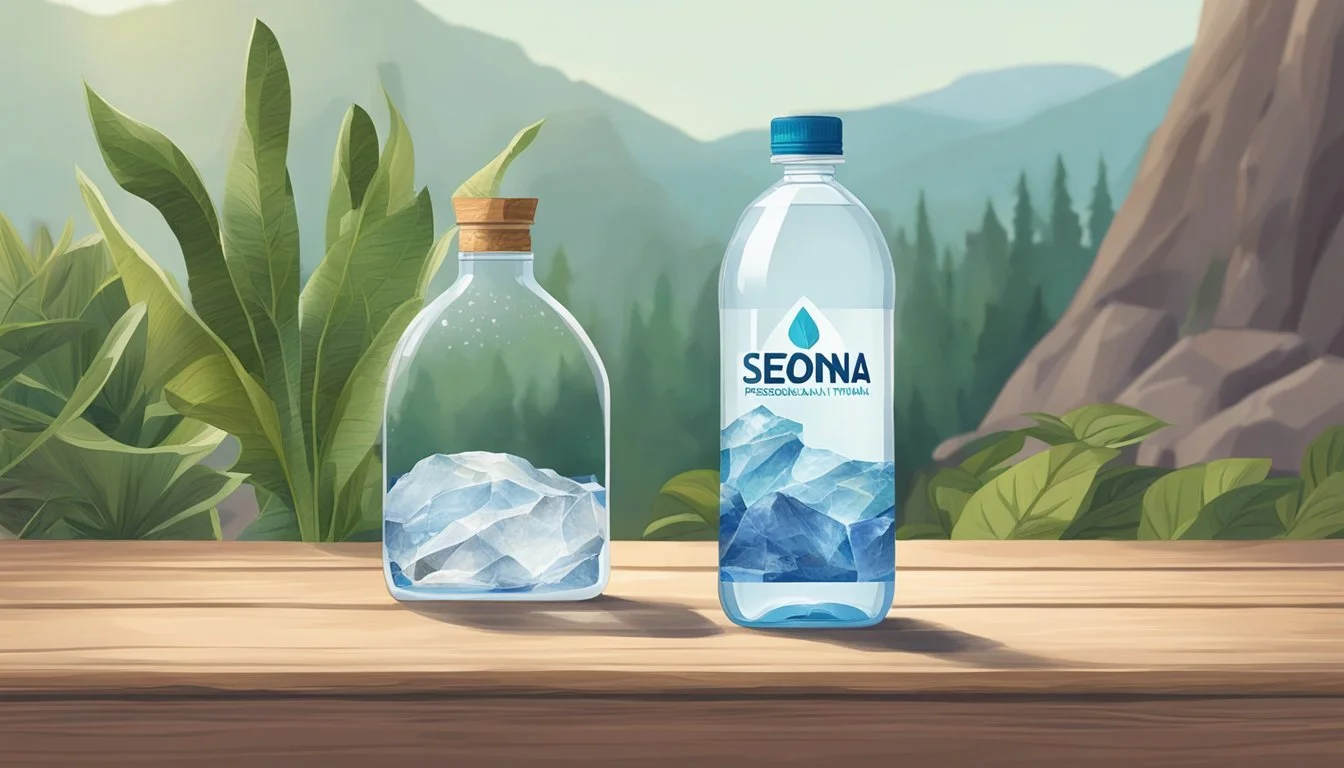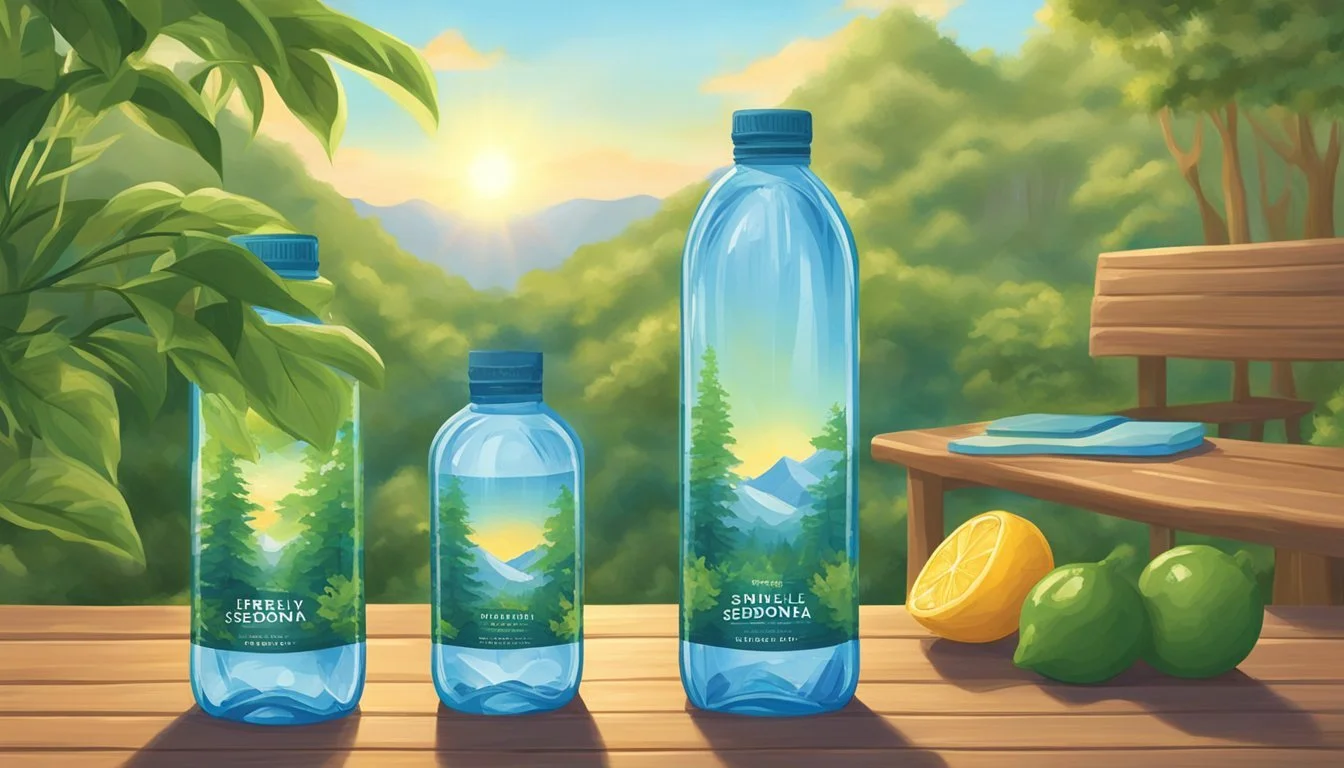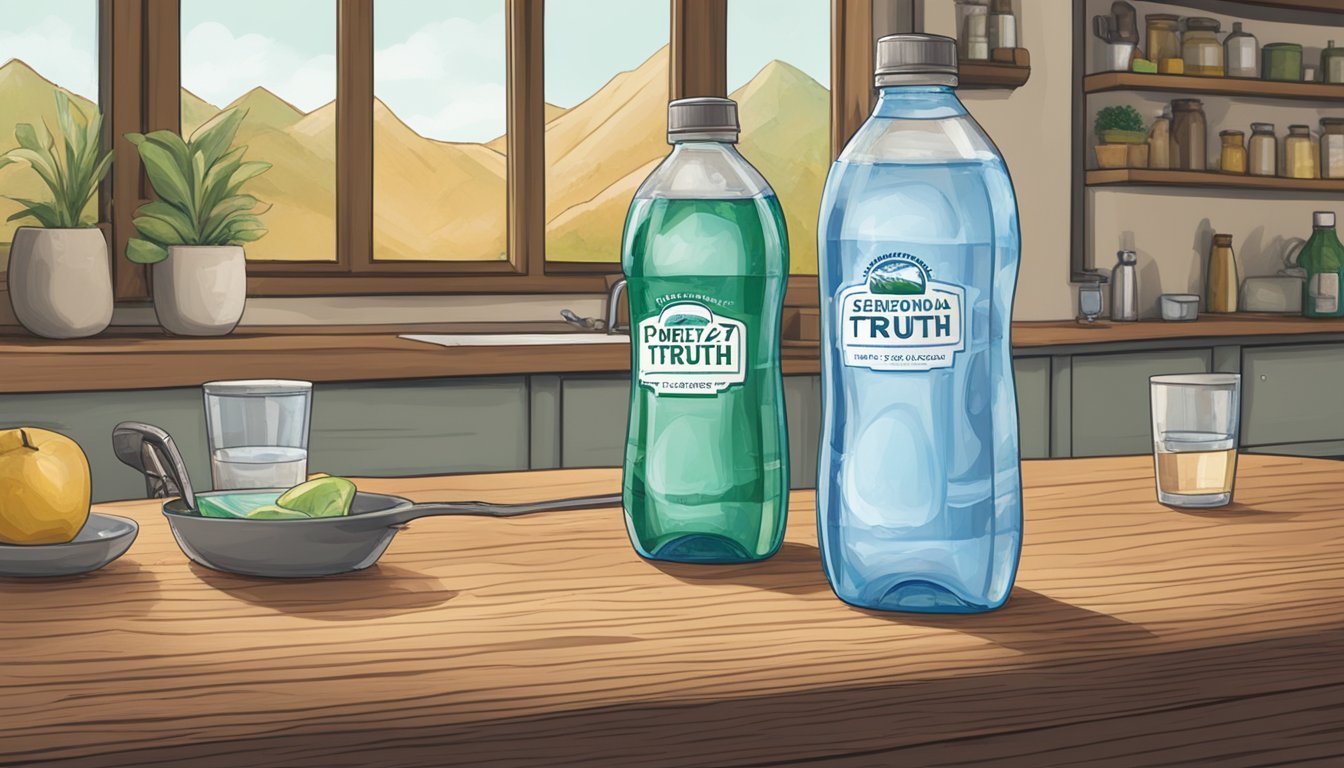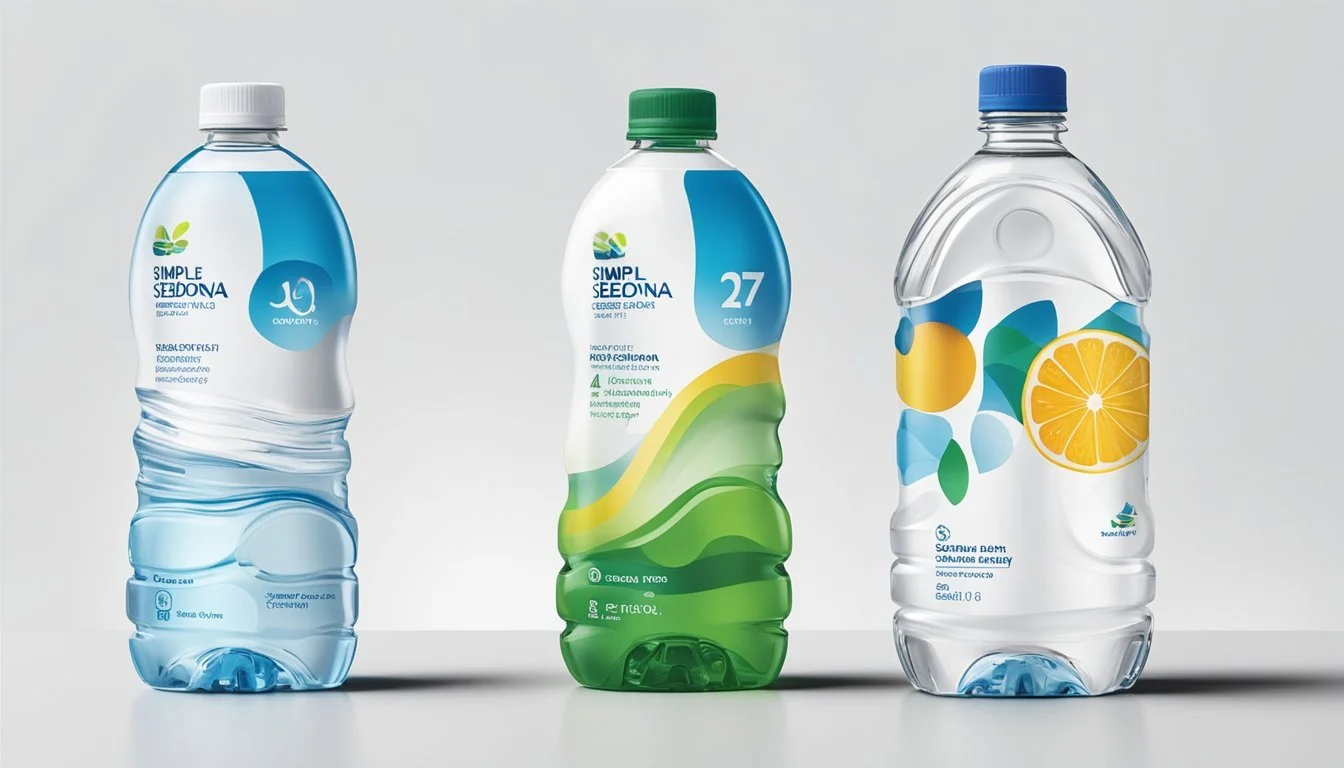Purely Sedona vs. Simple Truth
Comparing Bottled Waters
When it comes to choosing the best bottled water, the options can be overwhelming. Among the numerous brands, Purely Sedona and Simple Truth stand out for their commitment to quality and purity. Purely Sedona is known for its crisp taste originating from the natural springs of Sedona, Arizona. Simple Truth, a brand recognized for its affordability and accessibility, offers water that is both refreshing and readily available at many grocery stores.
Purely Sedona offers a premium experience, with its water sourced from artisanal wells and boasting a rich mineral content. This makes it a preferred choice for those who prioritize taste and natural sourcing. On the other hand, Simple Truth positions itself as an eco-friendly and cost-effective option, appealing to consumers who are environmentally conscious and budget-minded.
Ultimately, the decision between Purely Sedona and Simple Truth depends on individual preferences. Whether you value the natural, high-quality taste of Purely Sedona or the practical, sustainable approach of Simple Truth, both brands offer distinct advantages that cater to different needs.
Overview of Bottled Water
Bottled water has grown from a luxury item to a staple in many households. This section will explore its history, various types, and the global market landscape.
History and Evolution of Bottled Water
Bottled water dates back to the 18th century when mineral-rich spring water was sought after for its health benefits. Initially, it was only accessible to the wealthy due to the high cost of bottling and transportation.
The industrial revolution brought advancements in bottling technology, making it more affordable and accessible. By the 1970s, bottled water gained popularity for its convenience and perceived purity.
Today, it is a multi-billion-dollar industry with diverse options catering to different consumer preferences and demands.
Types of Bottled Water
Bottled water is categorized based on its source and treatment process. Spring water comes from underground sources and rises to the surface naturally. It retains its mineral content without significant processing.
Mineral water contains minerals like calcium and magnesium, which must be present in a specific ratio. This type of water is often sourced from mineral springs and bottled directly without undergoing purification.
Purified water undergoes various purification processes like distillation, deionization, or reverse osmosis to remove impurities. It is usually sourced from municipal reservoirs and offers high purity levels.
Global Bottled Water Market
The global bottled water market has seen significant growth in recent decades. Key drivers include increasing health awareness, rising disposable incomes, and the demand for convenient hydration options.
North America, Europe, and Asia-Pacific are the largest markets. The U.S. leads in consumption, followed by countries with limited access to clean tap water.
Major players include Nestlé Waters, Danone, and Coca-Cola, offering a variety of products from budget-friendly options to premium brands. Sustainable practices, such as using recyclable packaging and reducing carbon footprints, are becoming increasingly important in the industry.
The future of bottled water looks promising, with innovations focused on improving quality, sustainability, and meeting consumer preferences.
Understanding Water Quality and Sources
Water quality and sources are critical when comparing bottled water brands. Factors such as purity, natural spring water, the significance of the water source, and filtration processes all play roles in determining the best choice.
Determining Water Purity
Water purity is essential for safety and taste. Contaminants can include microorganisms, chemicals, and metals. Bottled water brands often undergo rigorous testing to ensure minimal contaminants.
Simple Truth focuses on achieving high purity levels by utilizing advanced filtration technologies. Purely Sedona prides itself on its pristine spring source, ensuring minimal initial contaminants and natural purity.
Purity directly impacts taste, safety, and consumer trust.
Natural Spring Water vs. Purified Water
Natural spring water originates from underground sources, naturally filtered through earth layers, retaining natural minerals.
Purely Sedona uses spring water which often has a distinct taste and mineral content. This water is naturally alkaline, adding potential health benefits.
Simple Truth might use purified water, which undergoes processes like reverse osmosis to remove contaminants. While this ensures purity, it often removes beneficial minerals, requiring re-mineralization for a balanced taste.
Spring water's organic filtration vs. purified processes offer different benefits regarding minerals and taste.
Significance of Water Source
The origin of water affects purity and mineral content. Proximity to pollutants or natural filtration processes can influence quality.
Purely Sedona sources water from the Sedona region, known for its clean, naturally alkaline spring sources. This location provides a unique mineral profile and clean taste.
Conversely, Simple Truth may use multiple sources, ensuring strict filtration standards. The key is how the water source impacts the final product, both in taste and safety.
Filtration and Purification Processes
Filtration and purification are vital to ensuring water quality. Reverse osmosis is a common method, removing most contaminants by forcing water through a semipermeable membrane.
Simple Truth might employ this technique, ensuring high purity levels by effectively eliminating harmful substances. This process, however, can strip out essential minerals, necessitating re-mineralization for taste.
Purely Sedona’s natural filtration involves aquifers and rock beds, enhancing mineral content.
Different filtration methods impact purity, safety, and taste. Reverse osmosis for rigorous purification vs. natural aquifer filtration affects the water's final mineral composition and flavor profile.
Analyzing Purely Sedona and Simple Truth Water
Purely Sedona and Simple Truth are two bottled water brands with unique offerings and origins. They cater to different consumer preferences, focusing on aspects like water quality, mineral content, and brand philosophy.
Brand Origins and Ethos
Purely Sedona is sourced from the Verde Valley region in Arizona and is known for its commitment to local businesses. The brand emphasizes purity and sustainability. It aims to provide high-quality, refreshing water with natural mineral content.
Simple Truth, a private label from Kroger, focuses on affordability and accessibility. It aims to offer natural and organic products at competitive prices, appealing to health-conscious consumers looking for value without compromising quality.
Product Range and Water Types
Purely Sedona offers a variety that includes still and sparkling waters. The sparkling version is slightly acidic and known for its crisp, clean taste. The water is enriched with natural minerals like calcium and magnesium, enhancing its overall taste and health benefits.
Simple Truth caters to a budget-conscious market and provides options like distilled, spring, and purified water. The brand’s offerings are straightforward, focusing on essential hydration needs without additional mineral enhancements. The simplicity of the product line makes it an attractive choice for everyday hydration.
Chemical Composition and Health Benefits
When comparing Purely Sedona and Simple Truth bottled waters, it's crucial to examine their chemical composition and the potential health benefits they offer. This involves considering factors like mineral content, pH levels, and scientific backing of health claims.
Mineral Content and Hydration
Purely Sedona and Simple Truth each contain unique mineral profiles that impact hydration. Purely Sedona is known for its balanced mineral composition, including magnesium, calcium, and essential electrolytes. This makes it a good option for effective hydration, especially for those with an active lifestyle.
Simple Truth, on the other hand, also offers a rich mineral content that includes magnesium and calcium. These minerals aid in hydration and support various bodily functions. The precise balance of minerals in Simple Truth water can contribute to maintaining hydration levels throughout the day.
Both brands emphasize their mineral offerings, with Purely Sedona and Simple Truth promoting their waters for enhanced hydration. However, the actual impact on an individual's hydration will depend on their specific dietary and hydration needs.
pH Levels and Alkalinity
The pH level is a significant factor in evaluating bottled water, as it can influence taste and potential health benefits. Purely Sedona boasts a slightly alkaline pH of 8, which some consumers seek for its purported ability to neutralize acid in the body and provide a smoother drinking experience.
Simple Truth also features an alkaline pH level of 8. The alkaline nature of both waters suggests potential benefits in balancing body acidity, though scientific consensus on these benefits remains mixed. Consumers interested in alkaline water often choose these brands for their potential to enhance overall wellness.
Alkaline waters like Purely Sedona and Simple Truth appeal to those mindful of pH balance, offering a subtle yet distinct flavor profile that some find more refreshing than acidic options.
Health Claims and Scientific Evidence
Purely Sedona and Simple Truth both highlight health benefits from their mineral compositions and alkalinity. Purely Sedona emphasizes eco-friendly practices alongside the claimed health benefits of its alkaline water. Simple Truth markets its water's purity, alkalinity, and eco-conscious packaging.
Marketing claims about health benefits, like improved hydration and acid-neutralizing properties, attract consumers to alkaline waters. However, while some studies support these claims, the evidence is not universally accepted in the scientific community.
Consumers should approach health claims with informed skepticism, recognizing that while there are benefits to drinking mineral-rich and alkaline waters, exaggerated claims are not always backed by robust scientific research.
Taste Profile and Consumer Preferences
When comparing Purely Sedona and Simple Truth, understanding the nuances of their taste profiles and the factors influencing consumer preferences is crucial. These bottled waters offer distinct experiences due to differences in mineral content and brand perception.
Defining Water Taste
Water taste is influenced by various factors, including its source and mineral composition. Purely Sedona is often described as crisp and refreshing, making it a favorite among those who prefer a clean taste. In contrast, Simple Truth offers a smooth, neutral profile that caters to consumers seeking subtlety.
Taste is a subjective experience, heavily tied to individual preferences and perceptions. Some individuals prioritize a refreshing feel, while others look for a smooth mouthfeel.
Impact of Minerals on Taste
Minerals play a significant role in the taste of bottled water. Purely Sedona's taste is enhanced by its unique mineral content, which includes naturally occurring minerals that maintain a balance of crispness. This makes it stand out for those who appreciate a refreshing finish.
Simple Truth, meanwhile, focuses on achieving a smooth taste through a balanced mineral composition. The low Total Dissolved Solids (TDS) content contributes to its neutral profile, appealing to those who prefer less prominent mineral flavors.
The Role of a Water Sommelier
Water sommeliers help in identifying the finest bottled waters by evaluating their taste profiles and mineral compositions. They consider how each brand's attributes appeal to different palates. Purely Sedona's crisp taste might be recommended for pairing with light meals due to its clean finish.
Simple Truth, with its smooth and neutral profile, may be suited for general consumption or as a versatile option for various culinary contexts. Water sommeliers emphasize the importance of personal preferences, guiding consumers to make choices that enhance their drinking experience.
Environmental Considerations
Environmental considerations are crucial when comparing bottled water brands. This includes examining the impact of packaging materials and sustainability practices adopted by the brands.
Bottled Water and Environmental Impact
Bottled water often uses plastic bottles, contributing significantly to environmental waste. Plastic can take hundreds of years to decompose, leading to large amounts of waste in landfills and oceans.
Glass bottles offer an alternative as they are more recyclable and do not leach harmful chemicals. Simple Truth mainly uses plastic bottles but promotes recycling programs to mitigate waste.
Purely Sedona emphasizes eco-friendly packaging. Their use of recyclable materials and a focus on minimizing environmental impact demonstrate their commitment to reducing waste and conserving resources.
Sustainability Initiatives by Brands
Purely Sedona employs sustainable practices throughout their bottling process. The company uses recyclable materials and aims to reduce waste via efficient production methods. This reduces their environmental footprint and conserves water resources in the region.
Simple Truth has implemented various recycling initiatives. These initiatives encourage consumers to recycle bottles after use. Although primarily using plastic, they focus on promoting the circular economy by reducing single-use plastic waste.
Both brands have a commitment to sustainability, but Purely Sedona showcases more advanced efforts in eco-friendly packaging and sustainable production practices.
Comparative Analysis of Cost Factors
In this analysis, cost factors are considered crucial as they impact consumer decision-making for both Purely Sedona and Simple Truth bottled water brands.
Price Point Comparison
The price of Purely Sedona and Simple Truth bottled water can vary significantly depending on the retailer.
At Whole Foods, Purely Sedona is often priced higher due to its branding as a premium product. A 12-pack of 16.9 oz bottles may cost around $15-20, reflecting its positioning in the market.
Simple Truth, available at many grocery stores, often presents a more budget-friendly option. The same quantity might be found for approximately $8-12. This price differential is notable and can influence purchasing decisions based on budget and perceived value.
Price promotions and bulk discounts also play a role. While Purely Sedona might have occasional sales, Simple Truth often benefits from more frequent discounts and loyalty programs, further enhancing its affordability.
Consumer Safety and Regulatory Standards
Consumer safety in bottled water is critical, with stringent regulations ensuring each brand meets high-quality standards. Purely Sedona and Simple Truth, like all bottled water brands, must adhere to these regulations to ensure safe consumption.
FDA Regulations and Safety Testing
The FDA regulates bottled water under the Federal Food, Drug, and Cosmetic Act. These regulations require bottled water to meet standards for contaminants, including microorganisms, chemicals, and radiological hazards.
Safety testing is rigorous, involving routine analysis of the water's source and the final product. Purely Sedona and Simple Truth must both undergo this testing to ensure compliance with federal standards before reaching consumers.
Key Requirements:
Maximum contaminant levels must be followed.
Regular inspections and testing are mandatory.
Labeling must accurately reflect the water’s source and purity.
Understanding Water Contaminants
Contaminants can affect the safety of bottled water. Lead, PFAS chemicals, and other pollutants pose significant health risks if present beyond acceptable limits.
Lead in water can cause severe neurological problems, especially in children. PFAS chemicals, found in some water brands, are linked to various health issues, including cancer and thyroid problems.
Contaminants to Watch:
Lead: Should be below 5 ppb (parts per billion).
PFAS: Should be as low as reasonably achievable.
Microbiological: Free from harmful bacteria like E. Coli.
Bottled Water Recalls and Consumer Alerts
Bottled water recalls occur when a product fails to meet safety standards or poses a risk to health. Both the FDA and International Bottled Water Association (IBWA) issue recalls and consumer alerts to protect public health.
Recent Recalls:
Products found with contamination levels above legal limits.
Instances where water was sourced from unauthorized or unsafe locations.
Poor bottling practices leading to contamination.
Consumers should always stay informed about recalls by checking FDA notifications and subscribing to alerts. Both Purely Sedona and Simple Truth are committed to transparency and consumer safety, ensuring their products meet all regulatory requirements.
Conclusion: The Verdict on Purely Sedona vs. Simple Truth
When comparing Purely Sedona and Simple Truth, there are key differences worth noting.
Purely Sedona water is artisan spring water from Sedona, Arizona. It boasts a pH of 8 and contains naturally occurring electrolytes. This makes it an alkaline option, appealing to those looking for a higher pH water.
Simple Truth, on the other hand, is also an alkaline water with a pH level of 8. It is distributed by The Kroger Co. and sourced from Crystal Falls Springs in Michigan.
Price Point:
Purely Sedona: $1.50 to $3.00 per bottle.
Simple Truth: Prices vary depending on the retailer.
Personal Preference plays a significant role. Individuals in Arizona may prefer Purely Sedona to support local businesses. Those outside of Arizona may lean towards Simple Truth due to familiarity with the Kroger brand.
In terms of taste and regional preference, Purely Sedona offers a crisp, refreshing profile, while Simple Truth provides consistent quality across its distribution network. Both options meet high standards for bottled water, leaving the choice largely to individual taste and brand loyalty.

